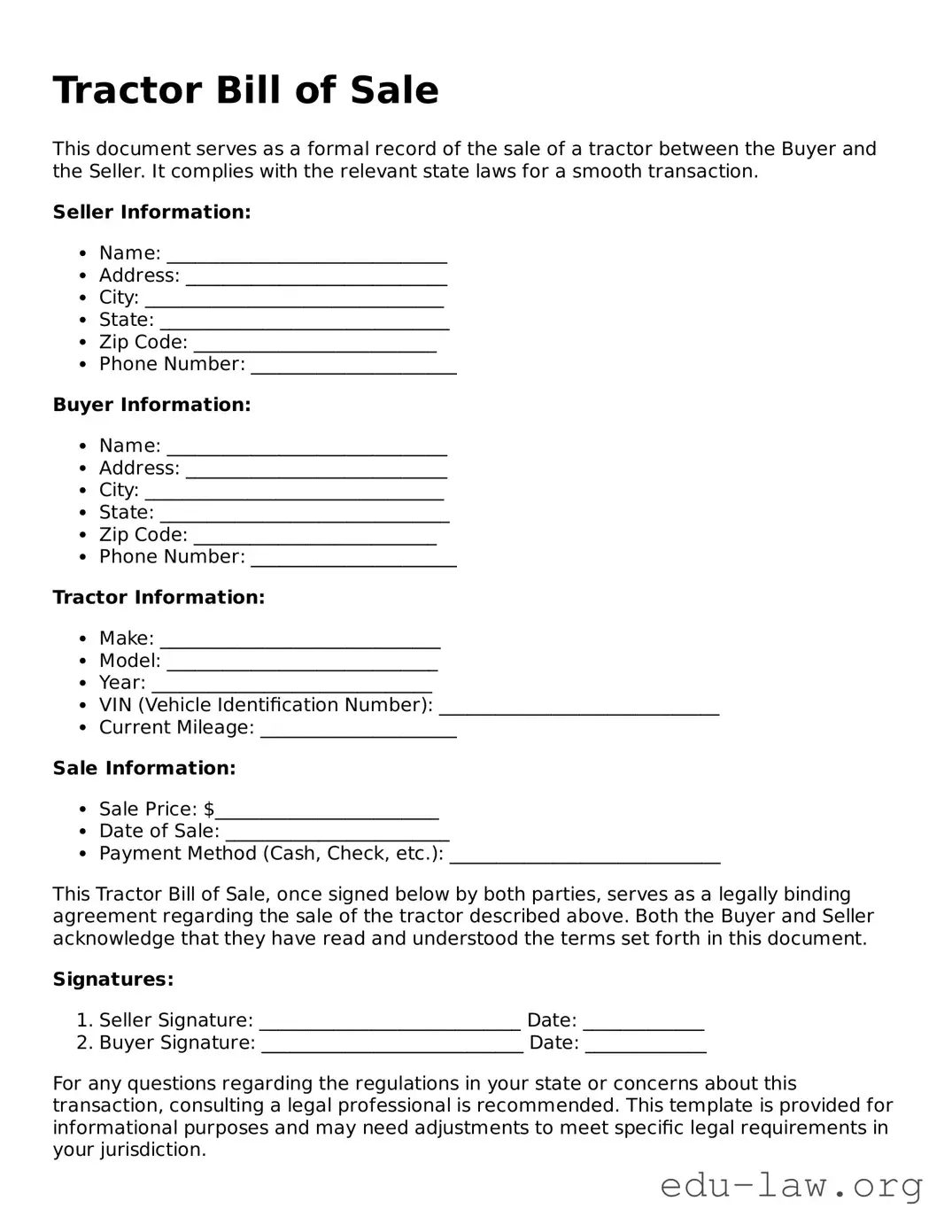What is a Tractor Bill of Sale?
A Tractor Bill of Sale serves as a legal document that records the transfer of ownership of a tractor from one party to another. This document includes essential information about the tractor, the buyer, and the seller, ensuring both parties have a clear record of the transaction.
Why do I need a Tractor Bill of Sale?
Having a Tractor Bill of Sale is important for several reasons. It provides proof of ownership, helps establish the terms of the sale, and can protect both the buyer and the seller in case of disputes. Additionally, some states require a bill of sale for registration purposes.
What information is typically included in a Tractor Bill of Sale?
Typically, a Tractor Bill of Sale includes the names and addresses of the buyer and seller, details about the tractor such as the make, model, year, and Vehicle Identification Number (VIN), the sale price, and the date of the transaction. Some forms may also include terms of the sale, warranty information, and signatures of both parties.
Is a Tractor Bill of Sale legally binding?
Yes, a Tractor Bill of Sale is a legally binding document once both parties have signed it. It acts as a contract, ensuring that the terms agreed upon during the sale are enforceable in a court of law, should a dispute arise.
Do I need to have the Tractor Bill of Sale notarized?
Notarization is not typically required for a Tractor Bill of Sale, but some states may have specific legal requirements regarding the notarization of bills of sale. It is advisable to check local regulations to be fully compliant.
Can I use a generic bill of sale form for my tractor?
Yes, you can use a generic bill of sale form. However, it is best to use a form specifically designed for tractors to ensure it includes all the necessary details pertinent to the sale. Specialized forms often cover aspects unique to agricultural machinery and can simplify the process.
What happens if I lose my Tractor Bill of Sale?
If the Tractor Bill of Sale is lost, the original parties involved may need to create a replacement document. This new bill of sale should include all original information and can be signed again by both the buyer and seller. It may also be helpful to keep copies of other documents related to the sale, such as a receipt or previous registrations.
Can a Tractor Bill of Sale be used for leasing a tractor?
No, a Tractor Bill of Sale is intended for the transfer of ownership, not leasing. Separate leasing agreements are used to outline the terms of a lease, including payment structure and duration. Ensure that appropriate lease documentation is prepared for leasing transactions.
Is there a specific format for a Tractor Bill of Sale?
While there is no universally required format, a well-structured Tractor Bill of Sale typically includes sections for identifying the buyer, seller, and tractor, as well as terms of the sale. Templates are often available online, or you can consult a local legal professional for assistance in drafting the document.
